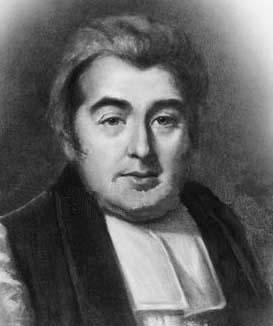Related Research Articles

Trinity College, officially The College of the Holy and Undivided Trinity of Queen Elizabeth near Dublin, is the sole constituent college of the University of Dublin, a research university in Dublin, Ireland. Queen Elizabeth I issued a royal charter for the college in 1592 as "the mother of a university" that was modelled after the collegiate universities of both Oxford and Cambridge, but unlike these affiliated institutions, only one college was ever established; as such, the designations "Trinity College" and "University of Dublin" are usually synonymous for administrative purposes.

John Mortimer Brinkley was the first Royal Astronomer of Ireland and later Bishop of Cloyne. He was President of the Royal Irish Academy (1822–35), President of the Royal Astronomical Society (1831–33). He was awarded the Cunningham Medal in 1818, and the Copley Medal in 1824.

William Magee was an Irish academic and Church of Ireland clergyman. He taught at Trinity College Dublin, serving as Erasmus Smith's Professor of Mathematics (1800–1811), was Bishop of Raphoe (1819–1822) and then Archbishop of Dublin until his death.

Richard William Enraght was an Irish-born Church of England priest of the late nineteenth century. He was influenced by the Oxford Movement and was included amongst the priests commonly called "Second Generation" Anglo-Catholics.

Richard MacDonnell LL.D., D.D., S.F.T.C.D. (1787–1867) was an Irish cleric and academic, who became the Reformist and 29th Provost of Trinity College Dublin. He was also the projector of Sorrento Terrace, Dalkey, today known as the largest row of houses in Ireland.

Charles Coote, 1st Earl of Bellomont KB PC(I), was an Irish peer. He held a senior political position as one of the joint Postmasters General of Ireland. Charles was briefly styled as The 5th Baron Coote between February 1766 and his elevation to the earldom in September 1767.
Arthur Smyth was Archbishop of Dublin from 1766 until his death in 1771.
The Regius Professorship of Laws is a professorship at Trinity College Dublin (TCD). It is one of the oldest chairs in the college, having been founded in 1668. Professor Mark Bell has held the post since July 2015.
George Massy (1706–1782) was Archdeacon of Ardfert from 1772 until his death.
Charles Massy (1695–1766) was Dean of Limerick from 1740 until his death.
William Cameron (1688–1765) was an Eighteenth Century Irish Anglican priest: the Archdeacon of Ardfert from 1738 until 1765.
Francis Lauder (1688-1765) was an eighteenth century Irish Anglican priest: the Archdeacon of Ardfert from 1724 until 1738.
Rev. Sir James Hutchinson (c.1731-1813) was an Anglican priest in Ireland in the second half of the eighteenth and early nineteenth centuries.
The Erasmus Smith's Professor of Mathematics at Trinity College Dublin is one of two endowed mathematics positions at Trinity College Dublin (TCD), the other being the Donegall Lectureship at Trinity College Dublin. It was founded in 1762 and funded by the Erasmus Smith Trust, which was established by Erasmus Smith (1611–1691). Since 1851 the position has been funded by Trinity College.
Sir Philip Hoby, 5th Baronet was a clergyman in the Church of Ireland during the 18th century.
William Crowe was a Church of Ireland priest in Ireland.
Daniel Hearne was an Anglican priest in Ireland during the mid-18th century.
Edward Bayly (1709-1785) was a clergyman in the Church of Ireland during the 18th century. He was the son of Sir Edward Bayly, 1st Baronet, an Irish landowner and politician, and Dorothy, daughter of the Hon. Oliver Lambart.
William Thompson (1766–1833) was Archdeacon of Cork from 1800 until his death.
William Henry Burton (1739–1818) was an Irish politician.
References
- ↑ "Fasti Ecclesiae Hibernicae: The succession of the prelates Volume 1" Cotton, H. p451: Dublin, Hodges & Smith, 1848-1878
- ↑ "Alumni Dublinenses : a register of the students, graduates, professors and provosts of Trinity College in the University of Dublin (1593-1860)" Burtchaell, G.D/Sadlier, T.U p265: Dublin, Alex Thom and Co, 1935
- ↑ St Mary Saltford